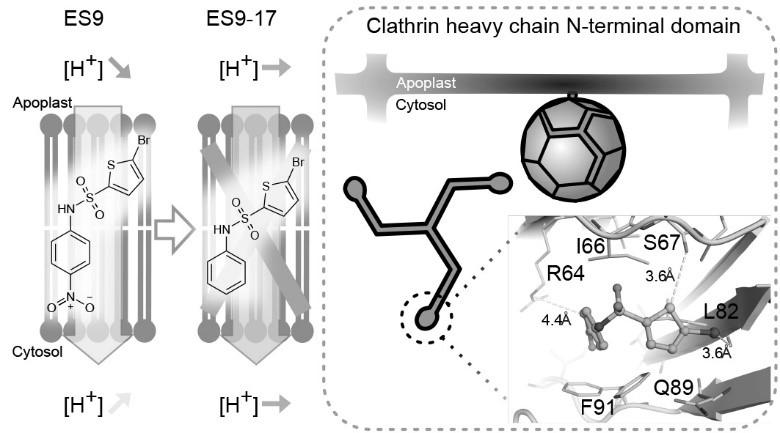Genetic studies of brassinosteroid signalling and of its interplay with endocytosis are hampered by gene redundancy, the very dynamic nature of endomembrane trafficking and the high degree of lethality of the genes encoding endomembrane components. Chemical genetics is a powerful approach that overcomes these limitations by the use of small molecules that perturb the protein function in a specific, fast, and conditional manner. The function of redundant proteins can be simultaneously perturbed by a general antagonist, thereby revealing novel phenotypes. Additionally, embryonic lethality due to interference with essential signalling components can be avoided by modulation of the dosage of the chemical compounds or by treatment at a later developmental stage. The main objective of this research is to identify a large set of small chemicals affecting endomembrane trafficking of different plasma membrane proteins by effectively blocking and accumulating these cargos in different endomembrane compartments.
-
 Chemical Genetics
Chemical Genetics
